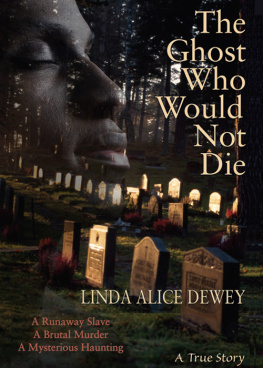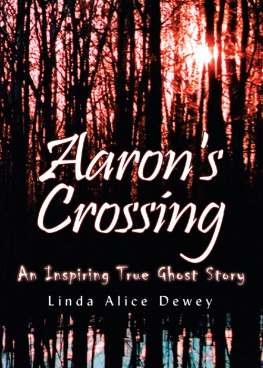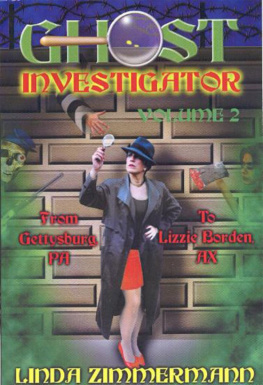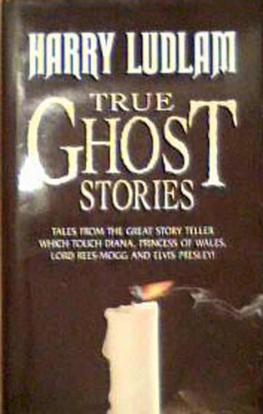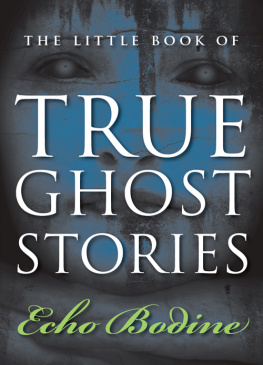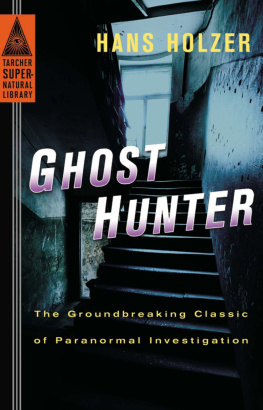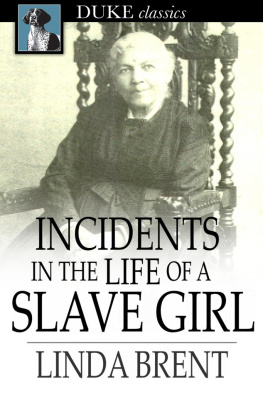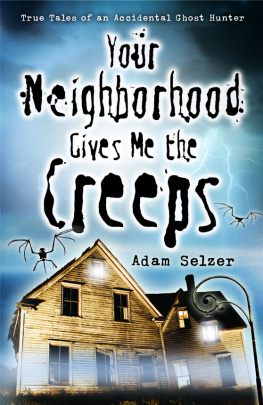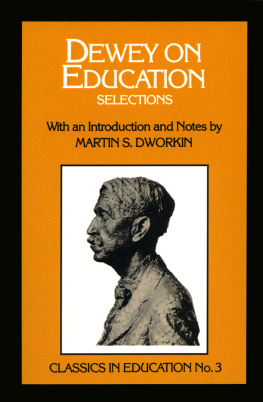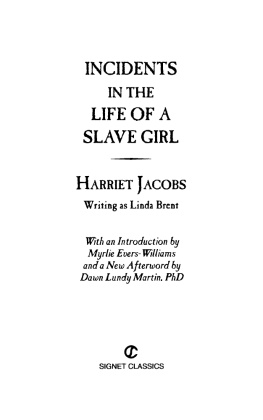Also by Linda Alice Dewey
Aaron's Crossing

Copyright 2008
by Linda Alice Dewey
All rights reserved, including the right to reproduce this work in any form whatsoever, without permission in writing from the publisher, except for brief passages in connection with a review.
Cover design by Jane Hagaman
Cover art: Tombstones in a Cemetary by [Svante Hultquist] / [Nordic Photos] / Getty Images; Young Man with Eyes Closed by [Thomas Barwick] / [Riser] / Getty Images
Hampton Roads Publishing Company, Inc.
1125 Stoney Ridge Road
Charlottesville, VA 22902
434-296-2772
fax: 434-296-5096
email:
www.hrpub.com
If you are unable to order this book from your local bookseller, you may order directly from the publisher.
Call 1-800-766-8009, toll-free.
Library of Congress Cataloging-in-Publication Data
Jacobs (Spirit)
The ghost who would not die : a runaway slave, a brutal murder, a mysterious haunting / Linda Alice Dewey.
p. cm.
Summary: Jacobs was a Civil War-era slave who was brutally murdered. In the present day, the author meets Jacobs's ghost and learns the story of his life as a slave, a runaway, and a vagrant in nineteenth-century
America"--Provided by publisher.
ISBN 978-1-57174-585-9 (tp : alk. paper)
1. Spirit writings. I. Dewey, Linda Alice. II. Title.
BF1301.J14 2008
133.1--dc22
2008020710
ISBN 978-1-57174-585-9
10 9 8 7 6 5 4 3 2 1
Printed on acid-free paper in Canada
Author's Note

This book is a work of creative nonfiction. The events involving the author actually took place. The other events may have. Some names and places have been changed to protect the privacy of those still living. The author of this book does not advise ghost hunting or ghost busting. The author's intent is simply to offer information that may help you on your own path through life towards spiritual and emotional well-being. Should you choose to use any of the information in this book on your pathwhich is your rightthe author and publisher assume no responsibility for your actions.
To Todd, who helped me market the last one
To Evan, who started me off on this one
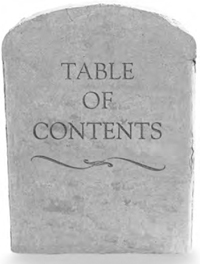
Chapter 1: 1885
Darkness
Chapter 2: 1885
Nightmare
Chapter 3: 1885
Outcast
Chapter 4: 1847
Beginning Backwards
Chapter 5: 1852
Heaven
Chapter 6: 1860
Changes
Chapter 7: 1862
In the Fields
Chapter 8: 1862
Chains
Chapter 9: 1862
Sold
Chapter 10: 1862
Sight
Chapter 11: 1863
Escape
Chapter 12: 1863
Freedom
Chapter 13: 1863
Soldiers
Chapter 14: 1863
The Attack
Chapter 15: 1863
The Window
Chapter 16: 1863
Finding Home
Chapter 17: 1865
Finding Love
Chapter 18: 1866
Shantytown
Chapter 19: 1885
Shadows
Chapter 20: 1935
Helping
Chapter 21: 1995
Connections
Chapter 22: 2003
Journey
Chapter 23: 2003
Contact
Chapter 24: 2003
Nothing
Chapter 25: 2006
Brightness
Epilogue
Author's Journal
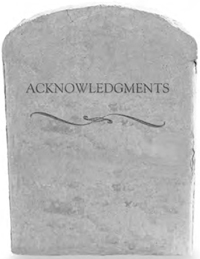
In October 2006, Jack Jennings, CEO of Hampton Roads Publishing, asked me what I'd been working on since Aaron's Crossing. I told him I was helping my father write his book about his World War II experience in a disastrous air battle known as the Kassel Mission.
I'm also working on a book about the ghost I helped after Aaron, I said. He was a runaway slave during the Civil War, with a twisted foot and his name was Jacobs with an s. I laughed. The idea was outrageous. Who would make that up?
Immediately enthusiastic, Jack put in for Hampton Roads to publish the book and they sent me a contract. Since it was scheduled to come out in Fall 2008, I put Dad's book aside. At eighty-four, he was healthy and we already had the chapters about the mission covered. I went right to work on Jacobs's story. Writing rolled along smoothly through the winter and I finished the first draft at the end of January 2007. Of course, the first draft is the quickest part of writing a book. It's also the scariest because, the way I write, I never know what's going to happen in the story.
On March 25, 2007, I received a call at 5 a.m. Dad had died of a heart attack. It took months for me to get back to Jacobs's story. You can imagine my regret and self-recrimination. No longer was Dad there to finish dictating his story to me. But wait. We could still do it. He'd just have to dictate to me from the Other Side. Though this may have been obvious, getting past the regret was still a process. I listened for Dad and received messages for Mom and myself. I could do it. One day, I would finish his book.
Back to work on Jacobs's story, the next bump came in Septemberback surgery. Bob Friedman at Hampton Roads expressed nothing but concern that I get well. The book could wait.
I recuperated faster than normal and finished editing the book in four monthsrecord time for me, but a year after completing the first draft.
And so I wish to thank my father for his sacrifice; my mother for her amazing strength; Jack Jennings and Bob Friedman for their foresight and patience; all the supportive people at Hampton Roads and in my life; my many first readers who dropped everything when it came time to read the manuscript; and everyone in this story.
Most of all, I thank God for gifts we constantly receive, and Jacobs, who continually reminded me that I wasn't the one writing this book.
Miss, he'd say when I got stuck, you done forgot all about how to do this now, didn't you? Just listen and glide along.
He was right. That's all we have to do.
Linda Alice Dewey
January 20, 2008
Martin Luther King Weekend
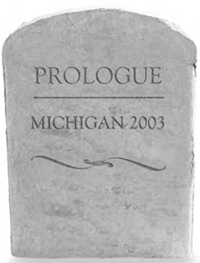
In doing our best, we break the bonds of our own slavery and proclaim freedom for all.
Author's Journal, February 2008
Evan saw him first.
Mom, we're not alone, he said.
Honey, of course we're not alone. I didn't even look up from my work. God's always
No, Mom, we're not alone in this house.
I turned to him. What do you mean?
Last night while you were gone, I used your microphone to rap with a CD. I was looking at myself in the picture window, like this. He rapped out the words to a song while he watched his reflection in the window bounce. He had the moves down.
I tried not to smile.
Then I went like this. Feet planted, he twisted and bounced to the side then back to center. I thought I saw something, so I did it again. He bounced left a second time, then stopped. It was still there.
What was?
A black shape, Mom. It didn't move.
A black shape?
We're not alone.
Ghosts don't have black shapes, do they?
Were you scared? I asked.
I quit and went up to my room.
Did you see it after that?
No, but it's still here.
How do you know?
I can feel it.
Next page
